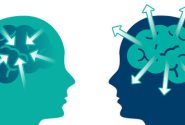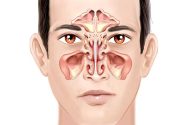به گزارش پایگاه خبری تحلیلی تسریر، به نقل از هلث دی نیوز، محققان بریتانیایی و آمریکایی از اسکن مغز برای تمرکز بر شبکه عصبی استفاده کردند که آنها را “نقطه ضعیف” در مغز نامیدند. این شبکه به عنوان آسیب پذیر در برابر اثرات پیری و همچنین بیماری آلزایمر، بیماری پارکینسون و سایر شرایط شناخته شده است.
«گینال دویوآد»، سرپرست تیم تحقیق و استادیار علوم اعصاب بالینی در دانشگاه آکسفورد، توضیح داد که شبکه عصبی تنها در دوران نوجوانی شروع به رشد میکند و در سنین بالا نشانههایی از زوال را نشان میدهد.
گروه او اسکنهای مغزی بیش از ۴۰۰۰۰ سالمند را مورد بررسی قرار داد، که همگی به عنوان بخشی از پروژه در حال انجام Biobank بریتانیا، شیوه زندگی و تاریخچههای پزشکی پیچیدهای را ارائه کردند.
این مطالعه تأثیر ۱۶۱ عامل خطر مختلف زوال عقل را بر روی شبکه عصبی هدفمند بررسی کرد. این موارد شامل فشار خون، کلسترول، دیابت، وزن، مصرف الکل، سیگار کشیدن، افسردگی، التهاب، آلودگی هوا، شنوایی، خواب، اجتماعی بودن، رژیم غذایی، فعالیت بدنی و آموزش بود.
دویوآد گفت: «به نظر میرسد سه عامل خطر بیشتر از بقیه، شبکه را تضعیف میکند.»
وی افزود: «ما میدانیم که شکل مناطق مغز در اوایل پیری تخریب میشود، و در این مطالعه جدید نشان داده ایم که این قسمتهای خاص از مغز در معرض دیابت، آلودگی هوای مرتبط با ترافیک و الکل، بیشتر در برابر زوال عقل آسیب پذیر هستند.»
این تیم همچنین به ژنتیک خاصی که ممکن است مغز فرد را کم و بیش آسیب پذیر کند، پی برد.
دویوآد گفت: «چندین تغییر در ژنوم این شبکه مغز را تحت تأثیر قرار میدهد و آنها در مرگ و میر قلبی عروقی، اسکیزوفرنی، آلزایمر و پارکینسون نقش دارند.»
این مطالعه در ۲۷ مارس در مجله Nature Communications منتشر شد.
دکتر اندرسون وینکلر، یکی از نویسندگان این مطالعه و دانشیار ژنتیک انسانی در دانشگاه تگزاس، گفت: «آنچه این مطالعه را خاص می کند این است که ما سهم منحصر به فرد هر یک از عوامل خطر قابل اصلاح را با بررسی همه آنها با هم تحلیل کردیم تا انحطاط حاصل از این «نقطه ضعیف» مغز خاص را ارزیابی کنیم.»
او گفت: “وقتی اثرات سن و جنسیت را در نظر گرفتیم – این سه مضرات ظاهر شدند: دیابت، آلودگی هوا و الکل.”
Out of a host of possible risk factors for dementia, three really stood out in a new analysis: Diabetes, air pollution and alcohol.
British and American researchers used brain scans to focus on a neurological network they labeled a “weak spot” in the brain. This network is known to be vulnerable to the effects of aging, as well as Alzheimer’s disease, Parkinson’s disease and other conditions.
The neural network only begins to develop during adolescence, and also shows signs of degeneration earlier in old age, explained a team led by Gwenaëlle Douaud, an associate professor of clinical neurosciences at the University of Oxford.
Her group examined brain scans from over 40,000 seniors, all of who also provided complex lifestyle and medical histories as part of the ongoing U.K. Biobank project.
The study looked at the impact on the targeted neural network of 161 different risk factors for dementia. These included blood pressure, cholesterol, diabetes, weight, alcohol consumption, smoking, depressive mood, inflammation, pollution, hearing, sleep, socialization, diet, physical activity and education.
Three risk factors appeared to weaken the network the most, Douaud said.
“We know that a constellation of brain regions degenerates earlier in aging, and in this new study we have shown that these specific parts of the brain are most vulnerable to diabetes, traffic-related air pollution — increasingly a major player in dementia — and alcohol, of all the common risk factors for dementia,” she said in an Oxford news release.
The team also gained insights into specific genetics that might make a person’s brain more or less vulnerable.
“Several variations in the genome influence this brain network, and they are implicated in cardiovascular deaths, schizophrenia, Alzheimer’s and Parkinson’s diseases,” Douaud said.
The study was published March 27 in the journal Nature Communications.
Study co-author Dr. Anderson Winkler is an associate professor of human genetics at The University of Texas Rio Grande Valley in Brownsville.
“What makes this study special is that we examined the unique contribution of each modifiable risk factor by looking at all of them together to assess the resulting degeneration of this particular brain ‘weak spot,'” Winkler said.
“Once we had taken into account the effects of age and sex — that three emerged as the most harmful: diabetes, air pollution and alcohol,” he said.
تسریر مراقب سلامتی شماست!












































































